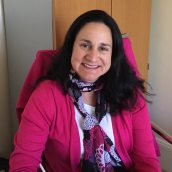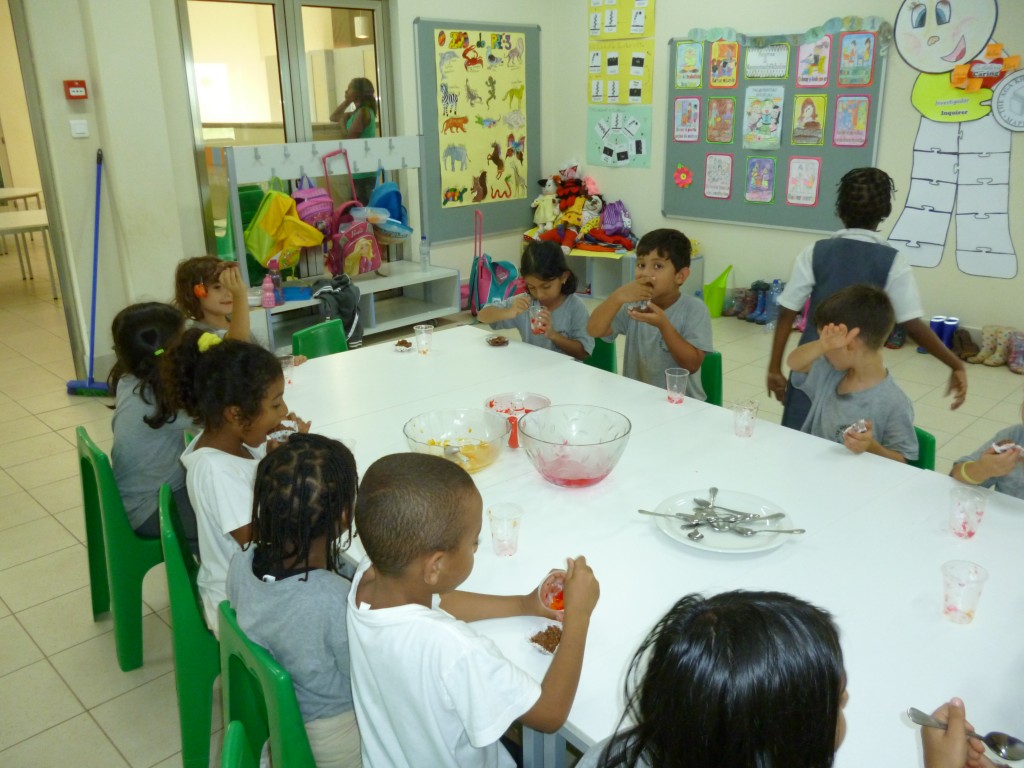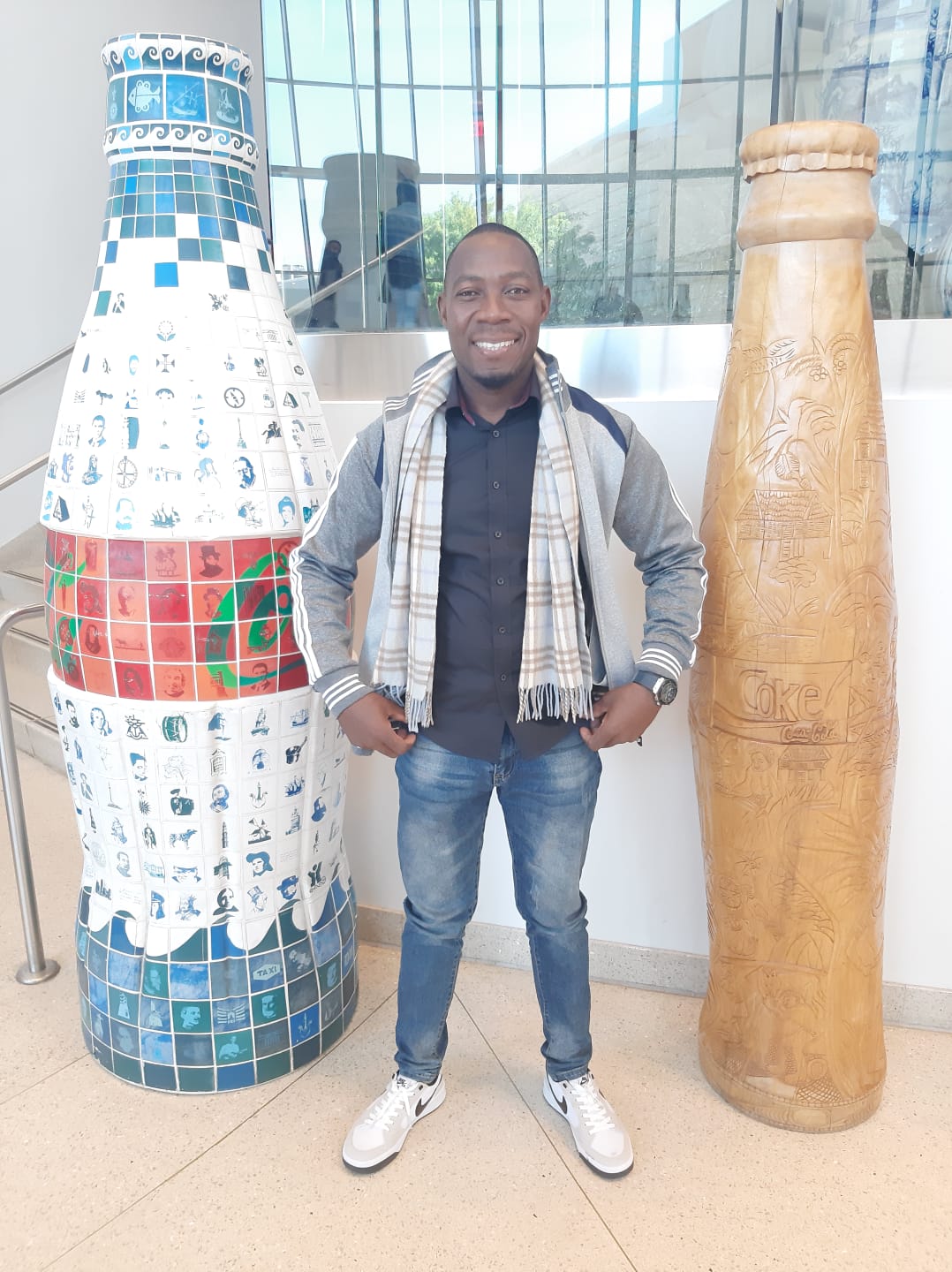US Concert Pianist stars at the Academy
Theresa Urist: A passion for education
An Interview with Theresa Urist, Global Director of University Counselling at the Aga Khan Academies
Theresa Urist has always loved to learn. Growing up in a rural community in New York state, where many of her classmates did not go on to college, her thirst for education led her to Stanford, where she earned a B.A. with Honours in American Studies and tutored high school students in her spare time. She realised that she loved teaching as much as she loved to learn, so she secured a spot in the Master of Education programme at Harvard University before becoming a high school teacher and, later, a university counsellor.After more than two decades as a counsellor in the United States, where she directed college counselling at three different schools, Theresa’s desire to support students from poor communities led her to the Aga Khan Academies, where she became the Global Director of University Counselling in 2015. Her role is essential to the mission of the Academies, which aim to produce effective, ethical leaders with the skills and knowledge to support positive development in their societies. As the networks’ university expert, she coordinates the university counselling process so that the students are admitted to and select universities where they will flourish in their chosen fields.
Aga Khan Academies writer Alia Dharssi sat down for a conversation with Theresa about her passion for education, her work at the Academies and what makes her tick. Their conversation has been edited for clarity and length.
Alia: Can you tell me about yourself and how you wound up becoming a university counsellor?
Theresa: I was born and raised in a very small town on Long Island in New York State. I wanted to be a journalist as a kid and wound up writing for my college daily newspaper, where I had a 1am news deadline. It was crazy and frenetic. I realised that’s not what I wanted to do, but I had also begun tutoring at a nearby school and I really, really loved working with the students. That experience put me in the direction of education. I earned a Masters of Education from Harvard and became an English and history teacher. In 1995, I answered the call to become an interviewer for Harvard undergraduate admissions. I loved talking to students about their future plans and goals during the interviews, so I put the pieces together and entered the field of university counselling.
Alia: What makes you passionate about education?
Theresa: The way I see it, education is the key to social mobility. When students – like the ones on full financial aid at the Academies who are selected through our talent identification programme – become educated, it’s something that doesn’t just benefit them. It benefits their family and their community and has a ripple effect. I see it as a way that entire communities can get themselves out of poverty in one generation. Education is the most concentrated way you can effect lasting social change. That’s what gets me up in the morning every single day to do the work that I do.
Alia: Have you always thought about education in this way?
Theresa: Education is always something that has been at the forefront of my mind. My parents were well educated, but I grew up in a very rural community where a lot of people had not studied beyond the secondary level. So, when I went off to university at Stanford 3,000 miles away from home, it was an eye-opening experience. I was surrounded by very motivated people with a lot of interesting ideas. I had been a big fish in a little pond in my secondary school because I was somebody who was very hungry for education. I tried to access a lot of educational opportunities despite the fact that I attended a regional, rural public high school that did not offer the most enriching academic experience. College was the first time in my life I was surrounded by students who had had very different life experiences, who had gone to schools that were very academically rigorous, who were incredibly curious. It was vibrant and transformative.
Alia: That sounds like an amazing experience. You started working at the Academies after two decades of working as a counsellor in the US. What inspired you to take the job?
Theresa: When I heard about the job, it seemed like a perfect fusion of my interests. The mission of the Academies in terms of providing educational opportunities for students regardless of their means is one that spoke to my heart. In two decades of counselling, I had gone from working in college prep, private schools to working at an urban public school with very low-income students. There are so many talented kids whose socioeconomic background prevents them from accessing very good academic opportunities in places where they’re going to flourish. And so, in my own job search, I was looking for an organisation that provided such opportunities for students in need. I was also interested in international education – in addition to being a US citizen, I’m also a Swiss citizen and I’ve spent a good amount of time overseas – so this position really spoke to me.
Alia: What kinds of struggles have you seen students from poor socioeconomic backgrounds face when it comes to getting a good education?
Theresa: In my last role in the US, I was working in an urban public charter school with low-income students from all over the world. The majority of my students were first generation, meaning their parents had immigrated to the US. They did not speak English at home and they would be the first in their families to access higher education. I helped them navigate the system. Many of their families came from countries where poverty was a problem. Just getting to the US was a big hurdle. In addition, education is very, very expensive in the US, so it was a challenge for those students to figure out how to finance their education.
Alia: That sounds quite different from your role at the Academy. How do the two experiences compare?
Theresa: I certainly have a lengthy background in university counselling, but when I was based in one single school, it was quite limiting in a lot of ways. My work at the Academies requires a much larger scope in terms of finding what universities are a best fit for particular students. I had good working knowledge of US and Canadian schools coming in. What’s newer for me is some of the other schools beyond that, particularly schools in the UK. It’s given me a greater global perspective on education in terms of the different programmes that exist and the ways in which universities are trying to position themselves globally.
Alia: Can you tell me about your trips to the Academies? What was your first impression?
Theresa: My first visit was to Hyderabad. I found the students compelling and the facilities stunning. Everything exists in the service of students and forwarding their academic and personal growth. When I first made a visit to the Mombasa school, I found the level of arts that students were doing and the level of introspection that went into what they were creating was incredibly deep and heartfelt. It was more advanced than what I’d seen at other schools. A lot of the students’ art projects dealt with issues of social justice and presented very clear messages that made me hopeful. Seeing that level of attention given to something that is often peripheral at other schools speaks volumes about the Academies.
Alia: Absolutely. Why is your role important to the Academies’ vision?
Theresa: As we grow as a network, we want to make sure we are offering a consistent quality of university counselling services across campuses, so that’s a really important part of my work. We want colleges and universities across the globe to know who we are and why they should admit our students and fund them, so a big part of my job is conducting outreach to universities and colleges. When a university takes a risk on a student and that student does well, then it knows that it has a viable academic candidate and will admit more and more students from our schools. My job is to try to create pipelines for students at academically rigorous universities that recognise who we are and why our students are so interesting and compelling.
I also conduct some professional development like workshops for faculty members where they receive training about best practices for writing recommendations for students. Both campuses are now on the Naviance platform, which is an online portal that allows students to track all their applications and send documents to universities electronically. We also track data on the admissions process on the platform.
Alia: That’s important work, but now for a less serious question. What do you do when you’re not busy counselling?
Theresa: I love to cook and bake. In particular, I like making fancy cakes and tortes. Every year, during the holidays, I create a gingerbread house. They’re not basic ones; I have architectural plans. Last year, I made a church with candy stained glass windows. The year before, it was a Victorian house. Every year I do a different structure.
Alia: That’s quite a hobby. Do you eat the houses?
Theresa: Yes, eventually I do. My friend’s kids help me decorate the house, it stays up and then it gets destroyed. So that’s one of my hobbies. To balance my baking interests, I was a distance runner and had run a bunch of marathons, but I had to stop after an injury. But I still really like to be active. I like hiking and skiing and being outside.
Alia: Is there anything else you’d like to say?
Theresa: I love the work I do. I feel like mine is a really important role, so I’m just very grateful for the opportunity to work on behalf of the Academies.
Contact the Aga Khan Academy Maputo

Contact Us
The Aga Khan Academy Maputo
Av. do Zimbabué, 212, Matola “A”
Maputo, Moçambique
Telephone:
- Academy reception: (+258) 853 016 339
- Junior School secretary: (+258) 853 036 210
- Senior School secretary: (+258) 845 306 375
Email:
- Admissions: admissions.maputo@agakhanacademies.org
- Junior School secretary: js.secretary.maputo@agakhanacademies.org
- Senior School secretary: ss.secretary.maputo@agakhancademies.org
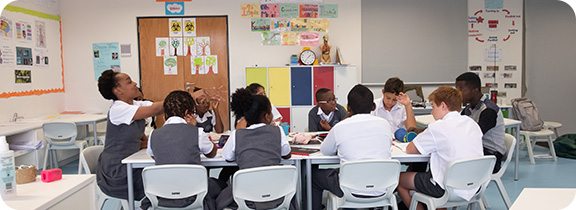
Financial Assistance
Admission to the Academy is based on merit. Students from all socio-economic backgrounds who satisfy the requirements for entry are encouraged to apply.
Partial to full financial aid is available to accepted students with a demonstrated need. Financial aid awards are reviewed annually and renewed only after reassessment of financial need.
For more information, and to access our financial aid application form, please see the following:
Please contact us for information about admission, scholarships and financial aid.
Interview with Alison Hampshire, Head of Academy in Mombasa
Students Cinzia Torriani (year 10) and Alisha Doshi (DP1) interviewed Alison Hampshire, the new Head of Academy at the Aga Khan Academy Mombasa. They discussed passions, dreams, important themes in education and life lessons.
Hello Mrs Alison. Could you please share a brief background of yourself?
Hello girls! Of course! Well, I was born in Leeds, North of England, and I lived there until I was 17. I left home to attend the University of Sussex in Brighton, which is on the south coast of England. I studied for a music degree and was even a musician for a period of time! I then decided to train to be a teacher and started my teaching career in Brighton. After a little while, I got involved in theatre and became involved with a theatre group. I then ended up in Africa teaching, went back to England, ended up in Hong Kong, then Malaysia, and now back in Africa – Kenya more specifically.
If you were to describe yourself in a sentence, what would it be?
I think in a sentence I would describe myself as honest, passionate about education and protective. I am like a lioness and will protect the people that I am looking after, and that would include my students, my staff and my own family. My birth sign is actually a Leo, and my animal in the Chinese culture is a tiger, so I could see myself as a tiger and a lion – both loving yet protective animals.
Those are very important traits in a person. Similarly, what are the two things that you are not?
I know that I am not a mean person. I am not a very sporty person either!
Can you please tell us a little more about yourself and your family, for our readers to get to know you better? Is there something about yourself (a few interesting facts) that you would want students to know?
One of the things that perhaps people don’t know about me is that I really, really like heights, which is why I have done many activities that involve taking the risk of jumping out of an aeroplane, abseiling or even paragliding. I have done a number of things that require me to take a risk. And so, although I am sometimes hesitant, every time I have a birthday ending with 0, I like to give myself a new challenge and do something that is very difficult for me. There is nothing greater than accomplishing your goals.
The other thing is that I really like spicy food, so if I’m ordering a curry and the option is mild or hot, I would go for the hot one!
What is the most valuable life lesson you have ever learnt that you feel has had the biggest impact on you as a person?
One of my most valuable life lessons was when I was only 15. It was the first time that I ever felt that I had failed. When I was young, I played the flute and I received a distinction on every exam that I took, until I did my grade 6 (bronze level) exam where I got a merit. In the scheme of things, that’s not terrible, but it was devastating for me, and the life lesson I learned was that you have to pick yourself up, brush yourself off and try harder next time.
I was not prepared to proceed to grade 8 (gold level) until I was convinced that I was going to get a distinction, and so I worked and worked and worked and eventually that’s what happened. But the feeling I got when I was disappointed in myself was really hard, and the lesson I learnt was that sometimes you just have to forgive yourself and carry on.
What made you choose education as a profession? Is it a calling, a service, an agency or a love?
I started out as a musician and then realised that it wasn’t what I wanted to do with my life. It was selfish in a way – it was about being the best you could be, it was a very competitive environment. Also, while growing up at school, people had always said to me that I was such a good teacher. And so when the music didn’t work out as a profession, I looked to other options and tried many things out before deciding to be a teacher, but when I finally did decide to be a teacher I knew it was the thing I should have been doing from the beginning.
What values do you promote in terms of a learning environment?
I find that English literature provides all sorts of scenarios by which students can engage with issues and also aids in developing empathy. And I think that, as an English teacher, the important thing you need to develop is for students to be able to step inside another world and think about the lives of others.
And so the novels that I choose would possibly be about those that have challenging themes. I remember teaching To Kill A Mockingbird in a school which was entirely white, to help a rural British community understand the challenges of the themes in that novel. It was a very interesting experience. I also find that this is what literature can do – it can help us to see other people and other people’s worlds, and help us develop our understanding of different perspectives and ideally empathy for others.
I completely promote pluralism – it is also one of the main things literature can do. I remember having read the Chinua Achebe trilogy, and it was the beginning of my love for stories, literature and the love for Africa as well.
Why the Aga Khan Academy Mombasa?
Mostly because of the vision and the mission of His Highness. I completely believe that education is about empowering young people and that it is about change. I have always felt that I have gone into education to make a difference, not necessarily one that I can make but one that can be made through the lives of others through young people. And so, when I came across the mission and the vision of the Academy, it really seemed to synchronise with my own values. The other attraction was that having lived in Africa for my very first posting outside of Britain, the thought of returning was very exciting.
The community of students here is one that I felt was interesting to join. To be honest, in the past I have never worked in a situation where there were local teachers in an international school – it has mostly been expatriate teachers, and I found that to be a very exciting prospect.
What is something you have never done before and you may be able to do here in Mombasa?
I have never eaten a whole lobster! Actually, I would love to learn how to kite surf over the next few years. I would also really like to go and find some great African music and spend a whole night dancing!
What is your take on the students at the Academy, based on your interactions with them thus far? Do they measure up, in terms of mindset and potential, to those you have experienced in the west?
I think it is really hard to generalise a whole student body, especially with the regard to the fact that I have mostly taught in the east in Asia rather than in the west, but there is definitely a big difference between students in England and students I have taught in an international setting.
I have found that students here are really open and really social, very welcoming, and they seem quite interested in the adults in their lives. They are polite and also seem to be inquirers. My most intense experience was when I went on the DP1 trip, and I felt that the level of interaction the students had with each other showed great compassion with one another. They asked great questions, seeming to be very interested and open-minded, which are very good traits.
Is there a favourite quote or saying or aphorism – a thought that you live by, a statement that encapsulates your personal view?
There is a quote by Gandhi which I live by, and it encapsulates my personal view. It is basically about self-esteem and states that nobody else is in charge of your happiness, other than yourself. It is “Nobody can hurt me without my permission”. I think that how you react to a situation is in your control, and over time I have learnt that it is nobody else’s power to do anything to you; physically they can, but emotionally how I react is how I am – which is the lesson I have learnt.
Finally, is there anything else you’d like our readers to know about you?
The really important thing that I would want to let everyone know is that I am having a lot of fun so far, and I am really enjoying my time here, and I hope that carries on.
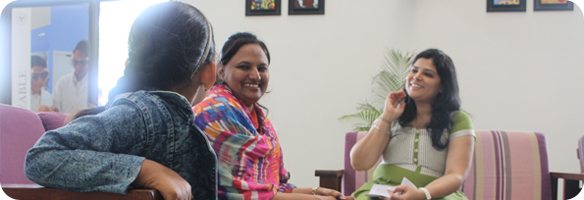
Admissions Enquiries
Our admissions team can help with all queries about becoming a student at the Academy, and with questions regarding the application process. Admissions office contact information:
Lines are open Monday to Friday 8.30 am–4.30 pm IST
+91-40-66291300
Email: admissions.hyderabad@agakhanacademies.org
Write to the Aga Khan Academy Hyderabad (online form)
Where to find us:
The Aga Khan Academy Hyderabad
Survey No: 1/1, Hardware Park
Maheshwaram Mandal, R.R. District
Hyderabad 501 510
Telangana, India
Clone of Contact the Aga Khan Academy Dhaka
Where To Find Us
The Aga Khan Academy Dhaka
Ka-65/1, Kuratoli
Dhaka-1229,
Bangladesh
(+880) 9638 111222 / 1709 997515 (general enquiries)
For admissions:
Phone: +880 1709 997510
Email: admissions.dhaka@agakhanacademies.org
Essential contact information for the Academy is available here.
Clone of Contact the Aga Khan Academy Dhaka
Where To Find Us
The Aga Khan Academy Dhaka
Ka-65/1, Kuratoli
Dhaka-1229,
Bangladesh
(+880) 9638 111222 / 1709 997515 (general enquiries)
For admissions:
Phone: +880 1709 997510
Email: admissions.dhaka@agakhanacademies.org
Essential contact information for the Academy is available here.
